^
1903 A trust busting victory.
The Expedition Act, which prioritizes
anti-trust suits filed in the nation's circuit courts, is passed.
It is seemingly another victory for President Theodore Roosevelt in
his crusade against Big Business. Starting in 1902, with his decision
to support disgruntled mine workers in their cause against coal operators,
Roosevelt had increasingly moved to marshal his power against business
interests. Under his charge, the Justice Department filed forty-five
anti-trust suits; Roosevelt also led the successful crusade to break
up Standard Oil's monopoly (1907). These maneuvers proved popular
with the public, not only fueling a growing distaste for the practices
of Big Business, but also earning Roosevelt a sterling reputation
as a tough-talking "trust-buster." However, some historians have questioned
Roosevelt's trust-busting credentials, pointing out that a number
of the Justice Department's anti-trust suits were dropped after business
leaders plead their case to the president. Roosevelt viewed "bigness"
as a fait accompli; his trust-busting stance was borne of political
expediency, as well as the desire to preserve the government's tacit
regulatory control of corporate America. |
1895 -17ºF (-27.2ºC) in Braemar, Grampian (UK record)
1889 Meiji constitution of Japan adopted; first Diet convenes
in 1890.
1873 King Amadeus of Spain, 27, abdicates.
First Spanish republic follows. Amadeus goes back to his native Italy.
1868 Léon Foucault discovers first physical proof of Earth's
rotation.
1864 Skirmish at Lake City, Florida.
1861 President-elect Lincoln takes train from Spingfield,
Illinois, to Washington DC.
1861 US House unanimously
passes resolution guaranteeing noninterference with slavery in any state.
^
1858 The Virgin Mary appears to St. Bernadette
In
Lourdes, France, Marie Bernarde Soubirous, 14, French peasant
girl, first claims to have a vision of the Virgin Mary, the mother
of Jesus Christ and a central figure in the Roman Catholic religion.
The apparitions, that total eighteen before the end of the year, occur
in a grotto of a huge rock promontory near Lourdes, France. Marie
explains that the Virgin Mary revealed herself as the Immaculate Conception,
asked that a chapel be built on the site of the vision, and told the
girl to drink from a fountain in the grotto, which Marie apparently
discovers by digging into the earth. Although her claims garner widespread
attention, the church authorities, skeptical of her visions, subject
her to severe examinations and abuse. After years of mistreatment
at the hands of the authorities and the curious public, she is finally
allowed to enter the convent of Notre-Dame de Nevers, where she dies
of ill-heath at the age of thirty-five. The sight of the manifestations
subsequently becomes the most famous modern shrine of the Virgin Mary,
and in 1933, Marie Bernarde Soubirous is canonized as St. Bernadette
by the Roman Catholic Church. Today, millions travel to Lourdes every
year to visit St. Bernadette’s grotto.
— Près du village pyrénéen de Lourdes, une jeune femme
apparait à Bernadette Soubirous, dans une grotte appelée Massabielle.
La petite bergère assistera dans les semaines qui suivirent à plusieurs
apparitions du même type. Au cours de l'une d’elles, la Dame lui confia:
«Je suis l'Immaculée Conception» (c'est-à-dire épargnée à la naissance
par le péché originel). La bergère rapporta ces mots à son curé sans
savoir que le pape Pie IX avait proclamé quatre ans plus tôt le dogme
de l'Immaculée Conception de Marie, la mère du Christ. Les apparitions
de la grotte miraculeuse stimulèrent la dévotion à Marie... et firent
de Lourdes l'un des plus célèbres pèlerinages du monde. |
1822. Las cortes españolas reprueban los Tratados de Córdoba,
los cuales desconocen a Fernando VII y rechazan la dependencia de España
al trono de Napoleón.
1814 Norway's independence
proclaimed.
1812 Massachusetts Gov. Elbridge Gerry
signs a redistricting law favoring his party and giving rise to the term
"gerrymandering."
1811 President Madison prohibits
trade with Britain for 3rd time in 4 years.
1808
Anthracite coal first burned as fuel, experimentally, Wilkes-Barre, Pennsylvania.
1793 Prussian troops occupy Venlo Netherlands.
1790
Society of Friends petitions Congress for abolition of slavery.
1768
Samuel Adams letter, circulates around American colonies, opposing Townshend
Act taxes.
1766 Stamp Act declared unconstitutional
in Virginia.
1752 Pennsylvania Hospital, the first
hospital in the US, opened.
1720 Sweden and Prussia
sign peace (2nd Treaty of Stockholm).
^
1588 Pope Sixtus
V decrees reform of the curia by Immense aeterni
Before his pontificate, ecclesiastical
business was generally discharged by the pope in consistory with the
cardinals. There were, indeed, a few permanent cardinalitial congregations,
but the sphere of their competency was very limited. In his Bull "Immensa
aeterni Dei", of 11 February, 1588, he established fifteen permanent
congregations, some of which were concerned with spiritual, others
with temporal affairs. They were the Congregations: (1) of the Inquisition;
(2) of the Segnatura; (3) for the Establishment of Churches; (4) of
Rites and Ceremonies; (5) of the Index of Forbidden Books; (6) of
the Council of Trent (7); of the Regula |
1892 Pike's Peak (Colorado) is set aside as a forest preserve. 1922 Insulin
is discovered by Canadian surgeon Frederick Banting and his assistant Charles
Best. 1937 General Motors agreed to recognize the United Automobile Workers
Union, thereby ending the current sit-down strike against them. 1942 The
comic book, "Archie" makes its debut. 1945 During World War II, the Yalta
Agreement was signed by US President Roosevelt, British Prime Minister Winston
Churchill and Soviet leader Josef Stalin. 1960 Jack Paar walked off while
live on the air on the "Tonight Show," with four minutes left. He did this
in response to censors cutting out a four-minute joke from the show the
night before. 1968 The new 20,000 seat Madison Square Garden officially
opened in New York. This was the fourth Garden. 1975 Margaret Thatcher becomes
the first female leader of a British political party when she is elected
leader of the Conservative Party. 1979 Nine days after the Ayatollah Ruhollah
Khomeini returned to Iran (after 15 years in exile) power was seized by
his followers. 1984 The tenth Space Shuttle mission returned to Earth safely.
1990 After 27 years in prison, South African opposition leader Nelson Mandela
is released. 1993 Janet Reno was appointed to the position of attorney general
by US President Clinton. She was the first female to hold the position.
1575 King Frederick of Denmark offers island of
Hveen to Tycho Brahe
1573 first European, Francis
Drake sees the Pacific (from Panama)
1543 Charles
V and Henry VIII sign anti-French covenant
1543
Battle at Wayna Daga: Ethiopian and Portuguese troops defeat Moslem army
1531 Henry
VIII recognized as supreme head of the Church in England
0731
Pope
Saint Gregory II is buried.
^
— 0660 BC- Traditional founding of Japan
by Emperor Jimmu Tenno (conmemorated as Empire Day or Foundation Day)
L'Empire japonais aurait été fondé le
11 février de l'an 660 avant JC, par Jimmu Tenno, un descendant de
la déesse du soleil, Amaterasu Omikami. La déesse est honorée dans
un célèbre sanctuaire d'Ise, entre Osaka et Tokyo. Elle est au centre
du culte shintô, la religion traditionnelle du Japon. Shintô est un
mot chinois qui dérive de shen (esprit) et tao (voie). Sa traduction
japonaise est Kami no michi, ou voie des esprits. Le shintoïsme reconnaît
en effet la présence d'esprits (Kami) dans les éléments de la nature
(lac, rochers, grottes, forêts,...). Il y aurait 800 millions ou 800
myriades de Kami, le plus célèbre étant le volcan Fuji (le Fuji Yama).
En 1867, quand l'empereur Meiji s'appropria le pouvoir absolu, il
eut soin de réaffirmer sa filiation avec Amaterasu et le caractère
sacré de sa dynastie. Il instaura aussi un shintô d'État au détriment
du bouddhisme importé de Chine. Après la défaite de 1945, sous la
pression des Américains, l'empereur Showa, connu de son vivant sous
le nom de Hiro Hito, convint publiquement qu'il n'était pas d'ascendance
divine. Les liens entre l'État et le culte shintô furent officiellement
coupés. La date du 11 février n'en reste pas moins une fête nationale
au Japon et le shintô des sanctuaires demeure très vivant. Ainsi,
lorsque débutent de grands travaux comme le percement d'un tunnel,
un prêtre shintoïste ne manque pas de bénir le chantier pour apaiser
les esprits de la nature. Pour l'historien Odon Vallet, «le Japon
demeure le seul grand pays de la planète dont la religion principale
puisse être qualifiée d'animiste» |
|
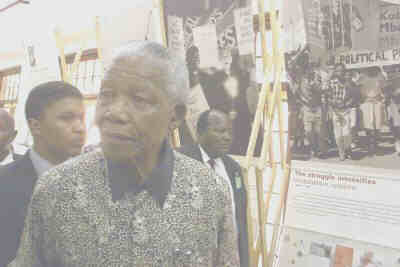
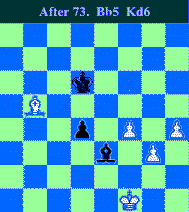
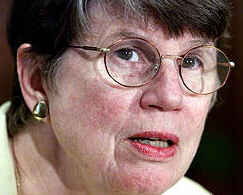 47.Qa3+Qd6
— 48.Qa2f5 — 49.Bxf7e4 — 50.Bh5Qf6 — 51.Qa3+Kd7 — 52.Qa7+Kd8 — 53.Qb8+Kd7
— 54.Be8+Ke7 — 55.Bb5Bd2 — 56.Qc7+Kf8 — 57.Bc4Bc3 — 58.Kg2Be1 — 59.Kf1Bc3
— 60.f4exf3 — 61.exf3Bd2 — 62.f4Ke8 — 63.Qc8+Ke7 — 64.Qc5+ Kd8 — 65.Bd3
Be3 — 66.Qxf5 Qc6 — 67.Qf8+ Kc7 — 68.Qe7+ Kc8 — 69.Bf5+ Kb8 — 70.Qd8+
Kb7 — 71.Qd7+ Qxd7 — 72.Bxd7 Kc7 — 73.Bb5 Black Resigns
47.Qa3+Qd6
— 48.Qa2f5 — 49.Bxf7e4 — 50.Bh5Qf6 — 51.Qa3+Kd7 — 52.Qa7+Kd8 — 53.Qb8+Kd7
— 54.Be8+Ke7 — 55.Bb5Bd2 — 56.Qc7+Kf8 — 57.Bc4Bc3 — 58.Kg2Be1 — 59.Kf1Bc3
— 60.f4exf3 — 61.exf3Bd2 — 62.f4Ke8 — 63.Qc8+Ke7 — 64.Qc5+ Kd8 — 65.Bd3
Be3 — 66.Qxf5 Qc6 — 67.Qf8+ Kc7 — 68.Qe7+ Kc8 — 69.Bf5+ Kb8 — 70.Qd8+
Kb7 — 71.Qd7+ Qxd7 — 72.Bxd7 Kc7 — 73.Bb5 Black Resigns 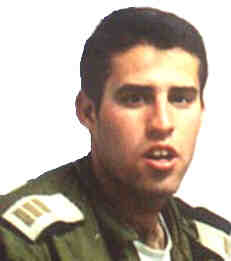 2004
Three Palestinians (one militant and two innocent bystanders) in
Israeli attack in the Rafah area along the Gaza-Egypt border, for the stated
purpose of searching for arms-smuggling tunnels. There are no Israeli casualties.
2004
Three Palestinians (one militant and two innocent bystanders) in
Israeli attack in the Rafah area along the Gaza-Egypt border, for the stated
purpose of searching for arms-smuggling tunnels. There are no Israeli casualties. On 13 July 2001, Burnett would be sentenced to the maximum penalty in California
for cruelty to animals: 3 years in prison. [picture: a bichon frisé >]
On 13 July 2001, Burnett would be sentenced to the maximum penalty in California
for cruelty to animals: 3 years in prison. [picture: a bichon frisé >] 1923
1923
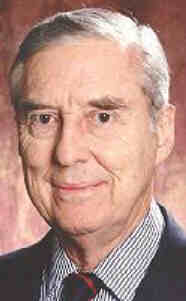 1921
Lloyd Bentsen (Senator-D-TX) (1989 Democratic Vice-Presidential
nominee) Lloyd Bentsen was nominated by President Bill Clinton to
be the 69th Secretary of the Treasury. He served from 20 January 1993
until 22 December 1994
1921
Lloyd Bentsen (Senator-D-TX) (1989 Democratic Vice-Presidential
nominee) Lloyd Bentsen was nominated by President Bill Clinton to
be the 69th Secretary of the Treasury. He served from 20 January 1993
until 22 December 1994